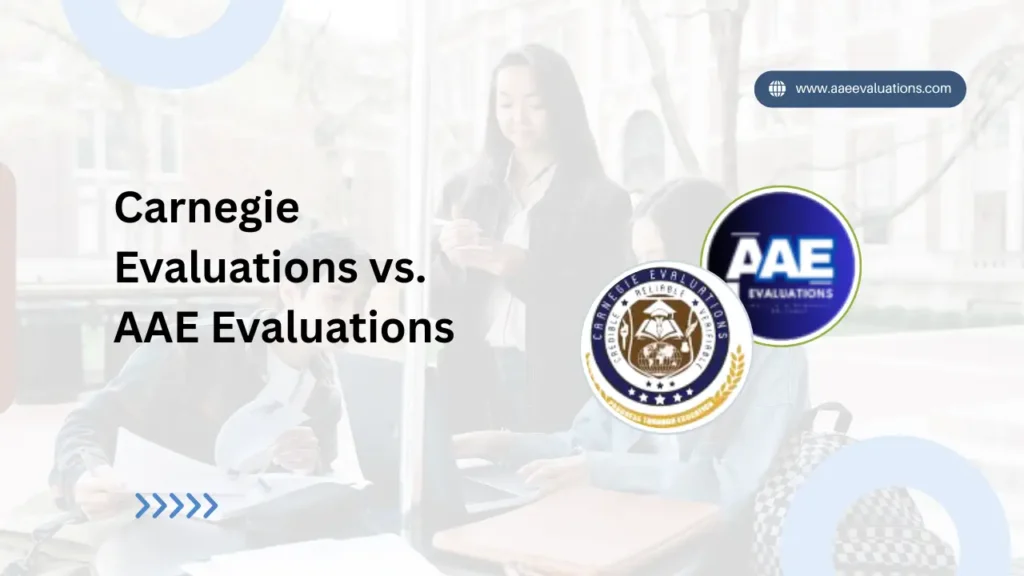Understanding EB1A Expert Opinion Letters and Why They Matter
Applying for a U.S. Green Card under the EB1A category is often seen as a dream path for extraordinary professionals, scientists, artists, entrepreneurs, and innovators. However, many applicants do not realize that it is not just about how impressive your achievements are but how those achievements are presented, interpreted, and validated in the eyes of the U.S. Citizenship and Immigration Services (USCIS).
This is where EB1A Expert Opinion Letters come into play.
An EB1A Expert Opinion Letter is not just another recommendation or support document. It is a strategic, analytical statement that gives your petition a voice of authority. It bridges the gap between your professional record and the strict legal standards USCIS officers must apply.
USCIS reviewers often come from non-technical backgrounds. They may not fully understand the depth or importance of your scientific publication, your role in developing a patented process, or your artistic innovation that influenced an entire industry. That is why your petition must translate technical excellence into measurable impact, and a well-crafted Expert Opinion Letter does exactly that.
In other words, while your resume shows what you have done, the EB1A Expert Opinion Letter explains why it matters in your field, how it meets USCIS criteria, and why you deserve classification as an individual of extraordinary ability.
In this comprehensive guide, we will reveal the truths about EB1A Expert Opinion Letters that few people discuss, including their importance, structure, common mistakes, and how expert assistance from AAE Evaluation can significantly strengthen your petition.
What Exactly Is an EB1A Expert Opinion Letter?
An EB1A Expert Opinion Letter is a professionally written evaluation from an independent expert within your field or a closely related domain. It provides an authoritative analysis of your professional achievements, qualifications, and contributions, directly linked to the legal eligibility standards of the EB1A visa.
Unlike a traditional recommendation letter that highlights your personal qualities or work ethic, this letter serves a legal and analytical purpose. It focuses on proving how your credentials meet specific immigration criteria outlined by USCIS.
Key Purposes of an EB1A Expert Opinion Letter
- To interpret complex achievements in a way understandable to USCIS reviewers
- To demonstrate compliance with EB1A criteria, such as significant contributions, leadership, or recognition
- To enhance credibility by offering an unbiased, third-party professional opinion
- To support documentary evidence like awards, publications, or patents with expert interpretation
Why EB1A Expert Opinion Letters Are So Important
Many applicants underestimate the power of these letters. The truth is, even the most outstanding accomplishments can fall flat if not presented in the right format or context.
A carefully written EB1A Expert Opinion Letter does more than validate your credentials. It interprets your entire professional journey for USCIS. It bridges the communication gap between your achievements and the officer’s understanding.
Here’s why this document is essential:
- Acts as Third-Party Validation – USCIS gives more weight to external, unbiased opinions than to self-declared claims.
- Transforms Technical Data into Legal Arguments – The letter translates achievements into legally relevant categories like original contributions or leading role.
- Strengthens Petition Narrative – It aligns your case evidence with the EB1A eligibility framework, ensuring a logical, persuasive flow.
- Builds Trust and Professional Credibility – When written by recognized authorities, it enhances the authenticity of your petition.
- Reduces the Risk of RFEs – A clear, well-structured letter can minimize the chance of receiving a Request for Evidence, saving time and effort.
Common Myths About EB1A Expert Opinion Letters
There is a lot of confusion about how these letters work. Let’s clear the air with facts versus fiction.
| Myth | Truth |
| A recommendation letter is enough for EB1A. | A recommendation letter praises your work, but an EB1A Expert Opinion Letter analyzes your credentials in direct relation to EB1A legal standards. |
| Anyone can write it. | USCIS requires that the expert be a recognized professional in your field, with verified academic or professional authority. |
| It’s just another formality. | It is a core evidentiary document. USCIS officers rely heavily on expert analysis to interpret your case. |
| You can reuse the same letter for multiple cases. | Each EB1A petition is unique; letters must be personalized to your achievements and criteria. |
| USCIS never checks who wrote it. | USCIS can and often does verify the credibility of experts, their publications, and qualifications. Letters from AAE Evaluation are always authored by credible, field-specific professionals. |
How EB1A Expert Opinion Letters Strengthen Your Petition
A strong EB1A Expert Opinion Letter is not just supportive, it is transformative. It changes your petition from a stack of documents into a cohesive story of professional excellence.
1. Clarifies Complex Achievements
Your contributions may be technical or niche, but USCIS officers are generalists. A well-written letter interprets your specialized accomplishments in simple, authoritative terms.
2. Connects Evidence to EB1A Criteria
It explicitly references how your records satisfy one or more of the EB1A benchmarks, such as:
- Original contributions of major significance
- Leading or critical role for distinguished organizations
- Published material about your work
3. Reinforces Objectivity
When your work is praised by an independent expert with recognized standing, it holds more legal weight than self-asserted claims or internal recommendations.
4. Adds Structure and Context
It ties your diverse documents like patents, awards, or media features into a unified argument that proves your extraordinary ability.
Difference Between an EB1A Expert Opinion Letter and a Recommendation Letter
These two documents often get confused. Here’s a professional comparison:
| Aspect | EB1A Expert Opinion Letter | Recommendation Letter |
| Purpose | Provides expert evaluation of eligibility under EB1A law | Offers supportive endorsement or personal praise |
| Tone | Objective, analytical, and evidence-based | Subjective and complimentary |
| Author | Independent expert in the same or related field | Supervisor, mentor, or colleague |
| Focus | Aligns achievements with USCIS criteria | Describes professional relationship and qualities |
| Legal Weight | High – USCIS considers it authoritative | Moderate – adds value but doesn’t define eligibility |
What Makes a Strong EB1A Expert Opinion Letter
The strength of your EB1A Expert Opinion Letter lies in its precision, credibility, and alignment with EB1A eligibility requirements.
Key Elements of a High-Quality Letter
- Expert Credentials – The writer should have verifiable experience, credentials, and reputation in your field.
- Objective Evaluation – Avoids flattery and focuses on factual, quantifiable analysis.
- Evidence Alignment – Ties your achievements to specific USCIS criteria.
- Clarity and Simplicity – Written so even a non-specialist officer can easily follow your case.
- Professional Structure – Includes introduction, background, evaluation, and conclusion.
Example Outline
- Introduction of the expert and their credentials
- Overview of the applicant’s career and achievements
- Evaluation of contributions in light of EB1A requirements
- Objective conclusion supporting the applicant’s eligibility
How to Obtain a Reliable EB1A Expert Opinion Letter
Many applicants waste time on generic templates or unverified writers, which can weaken their entire case. Choosing a trusted provider ensures accuracy, legal compliance, and credibility.
AAE Evaluation stands out as a leading choice for EB1A Expert Opinion Letters due to their combination of professional rigor and industry expertise. Their evaluation letters are:
- Accurate – Authored by experts with verified credentials in relevant fields
- Compliant – Structured according to USCIS EB1A legal framework
- Customized – Tailored to each applicant’s unique background and documentation
- Credible – Signed by qualified authorities with a clear professional record
This level of authenticity ensures that your letter not only supports your case but amplifies your eligibility narrative.
Common Mistakes to Avoid When Submitting EB1A Expert Opinion Letters
Even the smallest error can hurt an EB1A petition. Avoid these frequent mistakes:
- Using Generic Templates
USCIS can identify cookie-cutter letters easily. Every case must be uniquely written. - Unqualified Experts
If your expert lacks relevant credentials, the letter holds little evidentiary value. - Overly Technical Language
Officers may not understand industry jargon; clarity is essential. - Lack of Legal Alignment
The letter must reference EB1A-specific legal terms and criteria. - Exaggerated Claims
Inconsistencies or unrealistic descriptions can lead to RFEs or denials. - No Professional Review
Always have your letters reviewed for consistency and structure before submission.
Tips to Make Your EB1A Expert Opinion Letter Stand Out
- Back statements with evidence such as citations, metrics, or documented impact
- Highlight uniqueness by showing how your contributions are original or transformative
- Be concise yet complete and avoid filler phrases
- Align every paragraph with EB1A criteria
- Maintain a polished and professional tone
The Hidden Truth: Why Some EB1A Petitions Fail Despite Great Achievements
One of the most misunderstood facts about the EB1A process is that USCIS does not just approve great candidates, it approves great documentation.
Even if you are internationally recognized, your petition can fail if it lacks structured presentation and clear expert validation. USCIS officers must see your achievements fit the legal definitions under the EB1A criteria.
This is why EB1A Expert Opinion Letters are more than paperwork; they are strategic legal evidence. They transform your resume into a compelling legal argument.
Professionally crafted letters, such as those reviewed by AAE Evaluation, not only meet but exceed USCIS standards, minimizing the chances of RFEs and strengthening your overall petition profile.
Case Example: The Power of Expert Opinion Letters
Imagine two applicants applying under EB1A for original contributions of major significance.
- Applicant A submits awards, publications, and a few recommendation letters.
- Applicant B submits the same, plus a detailed EB1A Expert Opinion Letter from a qualified professional analyzing their impact within the global industry.
While both applicants have strong profiles, Applicant B’s petition appears more credible and complete because it includes expert analysis and verification.
USCIS reviewers prefer factual, independent assessments. This is why Expert Opinion Letters often become the deciding factor between approval and denial.
Professional Table: Key Differences Between Weak and Strong EB1A Expert Opinion Letters
| Criteria | Weak Letter | Strong Letter (as by AAE Evaluation) |
| Author Credibility | Written by unknown or unrelated individual | Written by recognized authority in applicant’s field |
| Tone | General praise or vague compliments | Evidence-based and professionally neutral |
| Structure | Unorganized and inconsistent | Clear sections with logical flow |
| Use of Evidence | Lacks data or proof | Cites metrics, awards, and measurable impact |
| Alignment with USCIS Criteria | No mention of EB1A requirements | Directly connects achievements to each legal criterion |
Final Thoughts
The EB1A Expert Opinion Letter is not just another document. It is the voice of authority that gives life to your accomplishments in the language USCIS understands.
A well-drafted letter validates your qualifications, reinforces your evidence, and clarifies your impact for the reviewing officer. Whether you are a scientist, researcher, artist, athlete, or business innovator, this document can be the deciding factor that turns a good petition into a winning one.
Working with professional experts like AAE Evaluation ensures that your letter meets USCIS standards for content, structure, and credibility, maximizing your chances of EB1A approval.
Remember: your achievements may open the door, but your documentation gets you through it.



